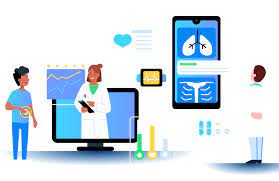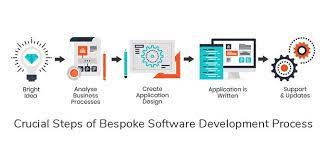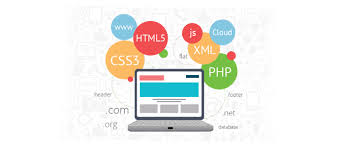In today’s rapidly evolving healthcare industry, technology plays a crucial role in improving patient care, streamlining operations, and enhancing overall efficiency. As healthcare organizations strive to meet the unique demands of their patients and stay ahead in a competitive landscape, custom healthcare software development companies have emerged as valuable partners.
A custom healthcare software development company specializes in creating tailored software solutions that cater to the specific needs of healthcare providers, including hospitals, clinics, pharmaceutical companies, and medical research institutions. These companies understand the intricate workings of the healthcare sector and possess the technical expertise to develop innovative software solutions that address complex challenges.
One of the key advantages of partnering with a custom healthcare software development company is their ability to create bespoke solutions. Off-the-shelf software may not always align perfectly with an organization’s unique requirements. Customized software development allows healthcare providers to have complete control over the features, functionalities, and integrations they need. This level of customization ensures that the software seamlessly fits into existing workflows and enhances operational efficiency.
Furthermore, a custom healthcare software development company can assist in developing applications that comply with industry regulations such as HIPAA (Health Insurance Portability and Accountability Act). Data security is critical in the healthcare sector due to sensitive patient information being handled daily. Custom-built software ensures that robust security measures are implemented from the ground up, protecting patient data from unauthorized access or breaches.
Another significant benefit of partnering with a specialized company is their deep understanding of healthcare processes. They possess domain expertise and can offer valuable insights into optimizing workflows and improving patient outcomes. By leveraging their knowledge, they can design intuitive user interfaces and user experiences that simplify complex tasks for medical professionals.
Moreover, custom healthcare software development companies often provide ongoing support and maintenance services. They understand that technology evolves rapidly, as do an organization’s needs. Regular updates and enhancements ensure that the software remains relevant and continues to meet changing requirements.
Collaborating with a custom healthcare software development company empowers healthcare organizations to stay at the forefront of technological advancements. By leveraging cutting-edge solutions, they can enhance patient care, improve operational efficiency, and make data-driven decisions.
In conclusion, in an era where technology is reshaping the healthcare landscape, partnering with a custom healthcare software development company is a strategic move for organizations aiming to optimize their operations and deliver exceptional patient care. These specialized companies offer tailored solutions that align with specific needs, ensure compliance with industry regulations, and provide ongoing support. With their expertise and collaborative approach, they empower healthcare providers to thrive in an increasingly digital world.
Frequently Asked Questions About Custom Healthcare Software Development Company
- What services do you offer for custom healthcare software development?
- How experienced are your developers in custom healthcare software development?
- What is the cost of developing a custom healthcare software solution?
- How quickly can you deliver a custom healthcare software solution?
- How secure is the data stored on your custom healthcare software solutions?
What services do you offer for custom healthcare software development?
We offer a full range of custom healthcare software development services, including:
• Design and implementation of customized healthcare software solutions
• Development and integration of healthcare IT systems
• Customized patient portals and medical record management systems
• Software integration with existing healthcare applications
• Custom reporting and analytics solutions
• Custom mobile applications for healthcare providers
• Secure data storage and transfer solutions
• Cloud-based solutions for medical data storage and management
How experienced are your developers in custom healthcare software development?
Our developers have a wide range of experience in custom healthcare software development. Our team includes developers with more than 10 years of experience in the field, as well as those who are just starting out. We believe that our diverse team allows us to offer the best solutions for our clients.
What is the cost of developing a custom healthcare software solution?
The cost of developing a custom healthcare software solution can vary significantly depending on various factors. It is important to understand that each project is unique, and the cost estimation will depend on the specific requirements, complexity, scope, and desired functionalities of the software solution.
Here are some key factors that can influence the cost of developing a custom healthcare software solution:
- Project Scope: The size and complexity of the project will have a direct impact on the cost. A simple application with basic features will generally be less expensive compared to a comprehensive software solution with advanced functionalities.
- Development Timeframe: The duration required to develop the software will also affect the overall cost. Urgent or time-sensitive projects may require additional resources or expedited development, which can increase costs.
- Features and Functionalities: The number and complexity of features required in the software will impact the cost. Advanced features such as integration with electronic health records (EHR), telemedicine capabilities, appointment scheduling systems, or data analytics tools may require more development time and expertise.
- User Interface (UI) and User Experience (UX) Design: The complexity and level of customization needed for UI/UX design can influence costs. A user-friendly interface with intuitive navigation may require more design work and thus increase development costs.
- Integration Requirements: If the software needs to integrate with existing systems or third-party applications like EHRs or billing systems, additional development efforts may be required, impacting overall costs.
- Regulatory Compliance: Healthcare software solutions must adhere to industry regulations such as HIPAA (Health Insurance Portability and Accountability Act). Ensuring compliance may require additional security measures or specialized development expertise, which can affect costs.
- Maintenance and Support: Ongoing maintenance and support services should be considered when estimating costs for a custom healthcare software solution. Regular updates, bug fixes, security patches, and technical support are essential for long-term success.
To obtain an accurate cost estimate, it is recommended to consult with reputable custom software development companies. They can assess your specific requirements, conduct a detailed analysis, and provide a tailored cost estimate based on the project’s scope and complexity. Remember that investing in a high-quality custom healthcare software solution can yield significant long-term benefits by improving efficiency, patient care, and overall organizational performance.
How quickly can you deliver a custom healthcare software solution?
The delivery timeline for a custom healthcare software solution can vary depending on several factors. The complexity of the project, the specific requirements, and the scope of work all contribute to the overall development timeline. It is important to note that quality and thoroughness should not be compromised for speed.
Developing a custom healthcare software solution typically involves several stages, including requirements gathering, design, development, testing, and deployment. Each stage requires time and attention to detail to ensure a robust and reliable solution.
To determine an accurate delivery timeline, it is recommended to consult with a custom healthcare software development company directly. They will assess your specific needs, evaluate the complexity of the project, and provide you with an estimated timeframe for completion.
It is crucial to allow sufficient time for proper planning and development processes. Rushing through these stages can lead to subpar results or potential issues down the line. A well-planned project timeline ensures that all necessary steps are taken to deliver a high-quality custom healthcare software solution.
Remember that effective communication between your organization and the software development company is vital throughout the entire process. Regular updates, feedback sessions, and collaboration will help ensure that expectations are met and any necessary adjustments can be made along the way.
While it’s important to have realistic expectations regarding timelines, it’s equally important not to compromise on quality in favor of speed. Developing a robust custom healthcare software solution requires careful planning, expertise, and attention to detail. Prioritizing these aspects will result in a successful outcome that meets your organization’s specific needs while adhering to industry standards and regulations.
How secure is the data stored on your custom healthcare software solutions?
The security of data stored on custom healthcare software solutions is of paramount importance. As a custom healthcare software development company, we prioritize the implementation of robust security measures to protect sensitive patient information.
Firstly, we ensure compliance with industry regulations such as HIPAA (Health Insurance Portability and Accountability Act) in the United States. HIPAA sets standards for the protection of electronic protected health information (ePHI). Our custom healthcare software solutions are designed to meet these stringent requirements, including encryption, access controls, audit trails, and secure transmission protocols.
To safeguard data integrity and confidentiality, we employ advanced encryption techniques. This ensures that data is encrypted both during transit and at rest. Encryption adds an extra layer of protection by converting sensitive data into unreadable ciphertext that can only be decrypted with authorized access.
We also implement strict access controls to limit data access to authorized personnel only. Role-based access control (RBAC) mechanisms are implemented to assign specific permissions based on user roles and responsibilities. This ensures that individuals can only access the data relevant to their job functions.
Additionally, we employ robust authentication methods such as two-factor authentication (2FA) or multi-factor authentication (MFA). These mechanisms require users to provide multiple pieces of evidence to verify their identity, reducing the risk of unauthorized access even if login credentials are compromised.
Regular security audits and vulnerability assessments are conducted to identify any potential weaknesses in the system. This allows us to proactively address vulnerabilities and ensure continuous improvement in our software’s security posture.
Furthermore, our team follows secure coding practices throughout the development process. This includes adhering to industry best practices for code review, vulnerability scanning, and penetration testing. By conducting rigorous testing procedures, we can identify and mitigate any potential security vulnerabilities before deploying the software solution.
It’s important to note that while we strive to implement robust security measures, no system is entirely immune from potential risks or attacks. However, by employing industry-standard security practices, we minimize the risk and continuously monitor and update our software solutions to stay ahead of emerging threats.
In summary, the security of data stored on our custom healthcare software solutions is a top priority. We adhere to industry regulations, implement encryption, access controls, and authentication mechanisms to protect sensitive patient information. Regular security audits and testing are conducted to identify and address vulnerabilities. Our commitment to robust security measures ensures that your data remains secure within our custom healthcare software solutions.




